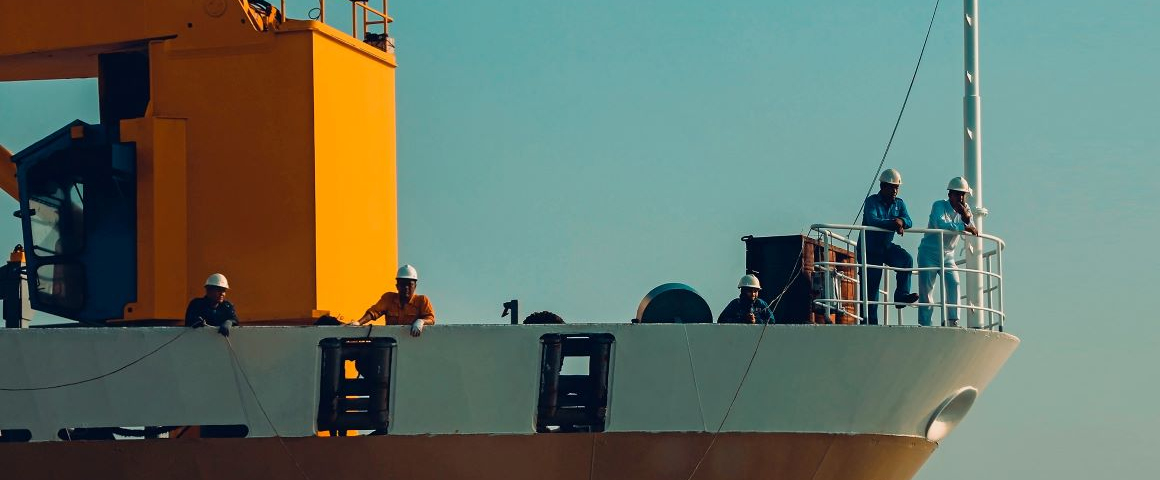By Alex C
The transportation of goods by sea has always been vital to the global economy. Raw materials are first transported to factories, then the finished products are directed to various markets. It is estimated that 90 percent of the world’s goods are transported at some point on a ship, in a global shipping industry that is estimated to be $3 trillion. In Canada, and throughout the world, shipping has always required a large pool of skilled workers. Unfortunately, marine workers continue to be victims of abuse by their employers, with some companies abandoning ships with crews on board. This was the case with the MV Ethan, where two sailors lived from 2016 to 2019 as prisoners on their ship that was tied to the port of Quebec City, without being paid.
The world has been hit hard by the COVID-19 pandemic – as ecommerce takes the wind out of the sails and makes fat cows of giants like Amazon the lives of millions of seafaring workers are being affected. Under normal circumstances, these workers are given a fixed-term contract that can range from a few months to more than a year – although theoretically, since 2006 this period has been limited to 11 months. They are then repatriated home when the vessel calls. Now, under health measures implemented around the world, seafarers are seen as potential carriers of COVID-19. Of 1.7 million merchant marine sailors world-wide, 800,000 have been ordered to stay on their ships – a virtual ban on going ashore – and the remainder are forced to stay at the dock. None are able to return home.
The International Transport Workers’ Federation (ITF) has documented the situation extensively. In its April 2020 message to G20 leaders, the ITF wrote:
“In addition to the many travel restrictions, plus challenges related to immigration and health screening protocols affecting seafarers and marine personnel, a pressing obstacle to crew changes – which are critical for safe and efficient maritime transportation activities to continue – is the current suspension of flights from many of the world’s airports.
“For humanitarian reasons – and the need to comply with international safety and employment regulations – crew changes cannot be postponed indefinitely…
“Tens of thousands of seafarers, whose tours of duty have come to an end, are already waiting to be repatriated…
“It is also a great concern for the industry that the restrictions in place have resulted in thousands of seafarers being at sea for several months already and this, combined with demanding tasks, both physical and mental, increases exponentially the risk of marine accidents and disasters happening, which is a daunting scenario for an already fragile and stretched global economy.”
Onboard working conditions are getting worse every day. Since the beginning of the pandemic, overtime controls are no longer in effect and ship inspections are often done by videoconference and are therefore very cursory. Jean-Philippe Chateil, General Secretary of the French CGT trade union’s Federation of Merchant Navy Officers, says that any worker who dares to oppose this situation is “dead” and their employer “will put him or her on the [blocklist].” Chateil notes that states “have chosen their priority: the fluidity of trade, even if it means re-establishing slavery in the merchant navy.”
The pandemic has also affected seafarers in Canada. The Seafarers’ International Union of Canada (SIU) has issued several statements regarding COVID-19 and union president James Given is committed to defending seafarers’ rights, including conditions during shore leave in ports with low risk of contagion. The SIU continues to put pressure on shipping companies to put in place satisfactory protocols and measures to protect crews. Given offers a reminder of the value of work done by Canadian seafarers: “Without you, our country would collapse, businesses would cease to exist, and trade would be paralyzed. You managed to keep shipping and trade moving in troubled areas and you continued to be among the highest class of seafarers in the world.”
Union Vice-President Patrice Caron says that for many ship owners around the world, maritime workers are of no value – only the cargo matters. Caron decries the absurd allegation that seafarers could be carriers of contagion: “We all know that for most international seafarers, voyages last more than fourteen days, which means that quarantine is served once they arrive in port. This frivolous and equally useless fear of some countries has been decried by trade unions.” He suggests that a possible tactic of struggle for seafarers would be to stop all transport to forbidding countries. Caron has proposed that such a measure be seriously debated at the International Labour Office in Geneva and the International Maritime Organization in London.
[Photo: International Maritime Organization]
[hr gap=”10″]
Get People’s Voice delivered to your door or inbox!
If you found this article useful, please consider subscribing to People’s Voice.
We are 100% reader-supported, with no corporate or government funding.




